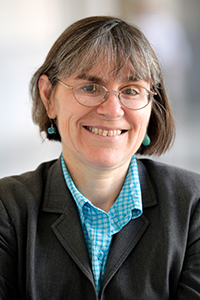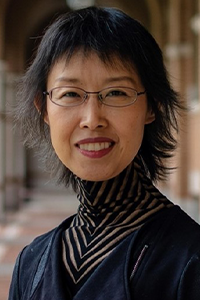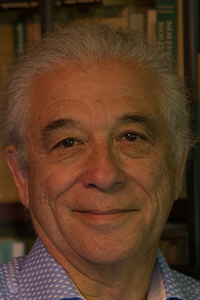Cross-border electricity interconnections are on the rise because they can be used to smooth out short-term grid stability issues caused by increasing amounts of intermittent power and improve the cost-efficient dispatching of electricity across large geographic areas. However, increased international electricity trade can also introduce geopolitical factors into electricity grids, including the threat of electricity coercion. Russia’s repeated attacks on the electricity system of Ukraine have raised the level of concern about this new geopolitical energy challenge. The stakes will be high as the world moves to a more electrified world.
Hosting electricity trading hubs and serving as technical leadership for electric infrastructure management and trade can bring geopolitical benefits, as recently recognized by China with its establishment of the Global Energy Interconnection Development and Cooperation Organization. Conversely, countries that could threaten such hubs could also derive geopolitical benefits. The United States must consider how the increased role of energy trade “by wire” changes its ability to defend global energy security via its energy exports and leadership role in key regional alliance systems.
Snacks/coffee for breakfast and a full lunch are provided.
Registration Deadline: Monday, April, 1
Registration Fee: $10 (promo code for Penn State students: geostudent100)
Moderated by: Chiara Lo Prete
Panelists include:

Margarita Balmaceda, Professor of Diplomacy and International Relations, Seton Hall University
Balmaceda has conducted extensive research analyzing the connections between natural resources, technology, international relationships and political development, with a special expertise in energy-industrial chains such as steel and fertilizers in Ukraine, the former USSR and the EU. Her latest book, Russian Energy Chains: the Remaking of Technopolitics from Siberia to Ukraine to the European Union (New York: Columbia University Press 2021), received the Marshall D. Shulman Book Prize. She spent 2022-2023 as a Fulbright fellowship in at the Research Institute for Sustainability (RIFS) in Potsdam, Germany. Her education includes a Ph.D. in Politics from Princeton University, Post-doctoral training at Harvard University, and ongoing training on metallurgical technology through courses at the World Steel University.

Alvin Camba, Assistant Professor, University of Denver
Camba received his Ph.D. in Sociology from the Johns Hopkins University. He is a faculty affiliate at the Center for International Environment & Resource Policy and the Climate Policy Lab at the Fletcher School at Tufts University. His research has been awarded multiple best research paper awards by several academic networks (International Studies Association, American Sociological Association, GRADNAS), has been published in top development and political economy journals (e.g., Review of International Political Economy, Development and Change, Energy Research and Social Science, etc.), and has contributed to widely-circulated think tank policy papers (e.g. Carnegie Endowment for International Peace, the International Republican Institute, and Center for International Private Enterprise) on China’s activities in Southeast Asia.

Songying Fang, Associate Professor, Rice University
Fang specializes in international relations. Her research areas include global governance, territorial disputes, military alliances, great power competition, and public opinion on foreign policy. She applies both game-theoretic and survey-experimental analysis in her research. Fang has published extensively in these areas, and her work has appeared in American Journal of Political Science, International Organization, Journal of Politics, British Journal of Political Science, and Chinese Journal of International Politics. She has received prestigious fellowships from Niehaus Center for Globalization and Governance at Princeton University and the Hoover Institution at Stanford University, and has served on the editorial board of leading political science and international relations journals such as American Political Science Review, International Organization and Chinese Journal of International Politics.
 Amy Myers Jaffe, Research Professor and Director of the Energy, Climate Justice and Sustainability Lab, New York University
Amy Myers Jaffe, Research Professor and Director of the Energy, Climate Justice and Sustainability Lab, New York University
A leading expert on global energy policy, sustainability, and geopolitical risk, Jaffe is author of several books including, “Energy’s Digital Future," and regular contributor and commentator in the popular podcast “The Energy Gang” and television and print media, including the New York Times, CNN International and the Wall Street Journal. Jaffe holds a career prize in energy economics from the US Association for Energy Economics and also served as the organization’s President in 2020. She is a lifetime member of the Council on Foreign Relations, where she served as the David M. Rubenstein Senior Fellow for Energy and Environment and Director of the Program on Energy Security and Climate Change (2017–

Ira Joseph, Senior Research Associate, Center on Global Energy Policy, Columbia University
Ira Joseph is a Senior Research Associate at the Center on Global Energy Policy at Columbia University. Until 2022, he was the global head of global generating fuels and electric power pricing at S&P Global Platts, with over 30 years of experience in the sector. Prior to his pricing role, he was global head of Gas and Power Analytics at Platts. Ira joined S&P Global Platts during the acquisition of PIRA Energy Group in 2016, where he started the firm’s European Gas and Power and Global LNG services in 1999. Before PIRA, he worked at Energy Intelligence Group, where he was the editor in chief of World Gas Intelligence and authored versions of the International Crude Oil Handbook and the original Global Gas Handbook.

Chloé Le Coq, Professor of Economics, University Paris Panthéon-Assas
Le Coq is a research fellow at both SITE-Stockholm School of Economics and DIW Berlin. She has held visiting positions at Purdue University, the University of California Energy Institute at Berkeley, and the National University of Singapore.
Her research investigates topics related to industrial organization, law, and economics, specifically emphasizing energy markets and their regulation. Her recent work includes empirical studies on nuclear safety, technology-mix competition, discourse patterns among B-Corp-certified companies, and energy security issues.

Ted Loch-Temzelides, George & Cynthia Mitchell Professor in Sustainable Development, Rice University; Visiting Research Scholar, Center for Health and Wellbeing (CHW), Princeton University
Loch-Temzelides holds an M.S. in mathematics and a Ph.D. in economics from the University of Minnesota. He conducts interdisciplinary research using mathematical modeling to guide science-based policy. His current work concentrates on studying policies to enhance resilience and mitigate risks resulting from emerging infectious diseases and from climate change. He also studies the role of incentives in sustainability and conservation, and applications of economics principles to ecology.

David Mares, Distinguished Professor Emeritus, UC San Diego; Nonresident Scholar for Latin American Energy Studies, James A. Baker III Institute for Public Policy, Rice University
Mares research interests include Latin America’s international relations and energy policies and has authored, co-authored or edited twelve books and a special journal issue, including Resource Nationalism and Energy Policy: Venezuela in Context (2022). He is a recipient of the “Alfred Stepan Lifetime Achievement Award in Defense, Public Security and Democracy” of the Latin American Studies Association, Section on Defense, Public Security and Democracy, the Institute of the Americas Endowed Chair for Inter-American Affairs at UCSD, and the “Outstanding Professor” award, UCSD Pan-Hellenic Council. His current research project analyzes the variations in how Latin American countries are confronting the transition to a low carbon energy future.

Anna Mikulska, Science and Technology Policy Institute (STPI)
Mikulska has a background in political science, international relations, and law. Prior to joining STPI she was a fellow in energy at Rice University’s Baker Institute, where she co-led the Program on Energy and Geopolitics in Eurasia, and a senior fellow at the Kleinman Center for Energy Policy at the University of Pennsylvania. She focused on markets and geopolitics of energy, including the use of natural gas as a geoeconomic tool and the role of U.S. exports of liquefied natural gas in the context of domestic and international energy security. Mikulska’s interests also include electoral politics and its impact on energy policy and international systems. She holds a doctorate in political science from the University of Houston, a master’s degree in international relations from the University of Windsor in Canada, and a law degree from Adam Mickiewicz University in Poland.

Joseph Webster, Senior Fellow, Atlantic Council
Webster works on energy geopolitics as a senior fellow at the Atlantic Council’s Global Energy Center, where he leads the center’s efforts on Chinese energy security, offshore wind, and hydrogen. Parallel to his energy work, he edits the China-Russia Report, an independent, non-partisan newsletter exploring developments in Sino-Russian relations. Webster completed a master’s degree in international relations from the Johns Hopkins University’s Paul H. Nitze School of Advanced International Studies and is proficient in Mandarin Chinese.

Abay Yimere, Postdoctoral Scholar, Tufts University
Prior to joining the Climate Policy Lab, Yimere worked extensively in sustainable development, green growth, climate finance, and climate change. He holds a master's degree in Sustainable International Development from Brandeis University, an M.P.A. degree from Harvard University's Kennedy School of Government, and a Ph.D. in Environment and Development from Addis Ababa University.
Yimere's research investigates policy barriers and drivers for renewable energy adoption, with particular interests in climate finance, low-carbon economic development, and energy access and transition in Africa. Currently, Yimere is researching the geopolitics of renewable energies, particularly within the DRC-Zambia Integrated Battery and Electric Vehicle Value Chain context.

